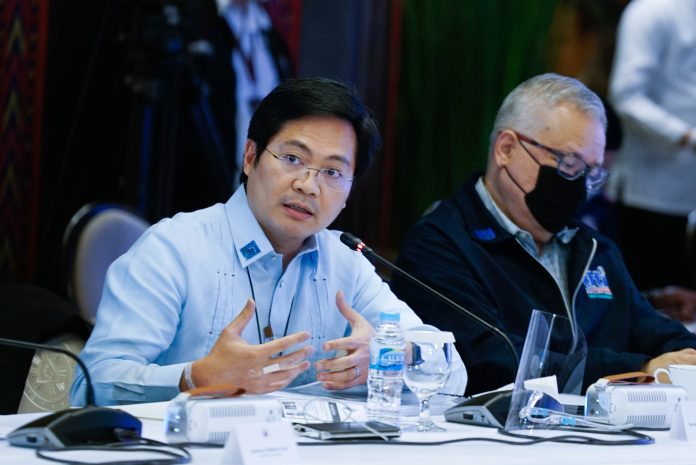The presidential palace on Monday, February 21, accused activists of using human rights issues raised by the European Union (EU) on the Philippines to influence the outcome of the coming national elections.
Acting presidential spokesperson Karlo Nograles said “detractors” of the government are trying to “color the perceptions of Filipino voters who in May will choose the country’s next leaders.”
He said the government has already taken steps to address the concerns of the EU Parliament on the human rights situation in the country.
“An existing dialogue mechanism with the EU is already in place, and we have expressed in numerous occasions our willingness to work and cooperate with the EU in order to shed light on the concerns they have raised,” said Nograles.
“The actions taken by the government in this regard are a clear demonstration of our compliance with conventions on human rights, labor, and good governance, among others,” he added.
“We urge those in the international community to view the government’s actions through the eyes of our people in order to have a better appreciation of the steps the [administration of President Rodrigo Duterte] has taken to ensure the safety, security, and prosperity of the country’s over 100 million citizens,” said Nograles.
The EU Parliament last week urged the Philippines to act on alleged human rights abuses, or lose trade perks and market access.
The EU Parliament adopted the resolution urging the EU Commission to “set clear, public, time-bound benchmarks for the Philippines to comply with its human rights obligations.”
It also urged the commission to “immediately initiate the procedure which could lead to the temporary withdrawal of GSP+ preferences if there is no substantial improvement and willingness to cooperate on the part of the Philippine authorities.”
The text was adopted by 627 votes in favor, 26 against, and 31 abstentions.
The GSP+ status grants the Philippines special incentives and zero tariffs on 6,200 products. Philippine products that enjoy tariff perks under the GSP+ include fruits, animal and vegetable fat, textile, footwear, vehicle parts, and metals.
To continue getting these trade perks, the Philippines has to adhere to 27 international conventions on human and labor rights, the environment, and good governance.
In 2020, 26% of the total Philippine exports to the EU enjoyed preferential treatment under the GSP+ scheme.
The EU is the Philippines’ 4th largest trading partner, accounting for almost 9% of the country’s total trade in 2018 (after China, Japan, and the US).









